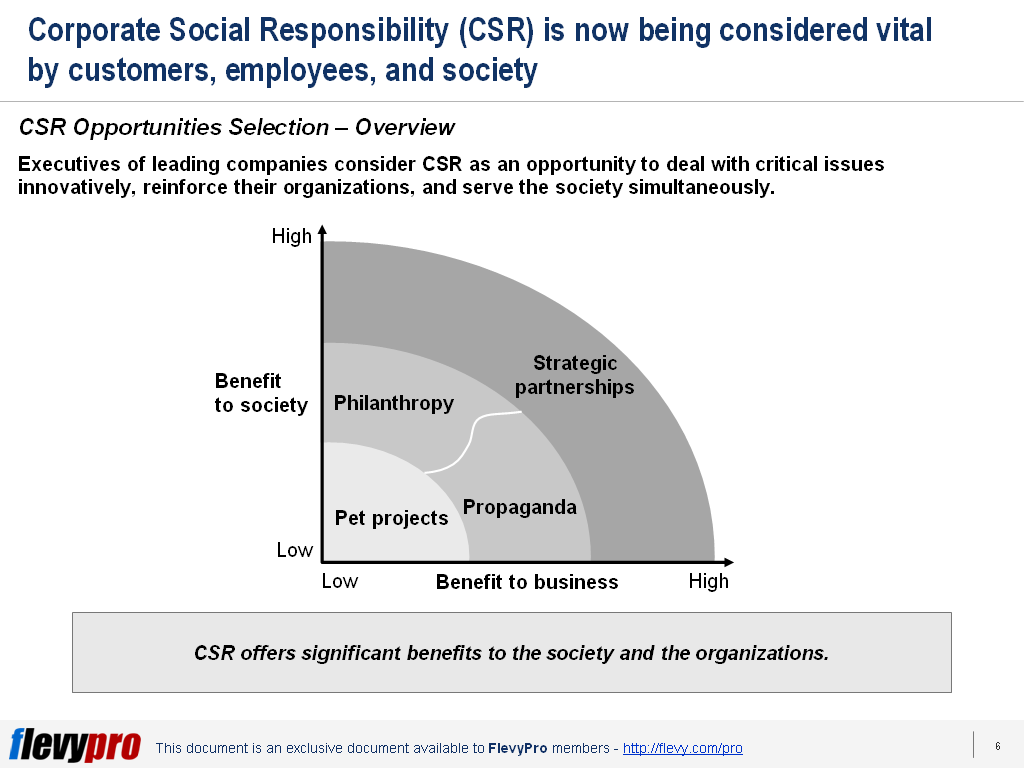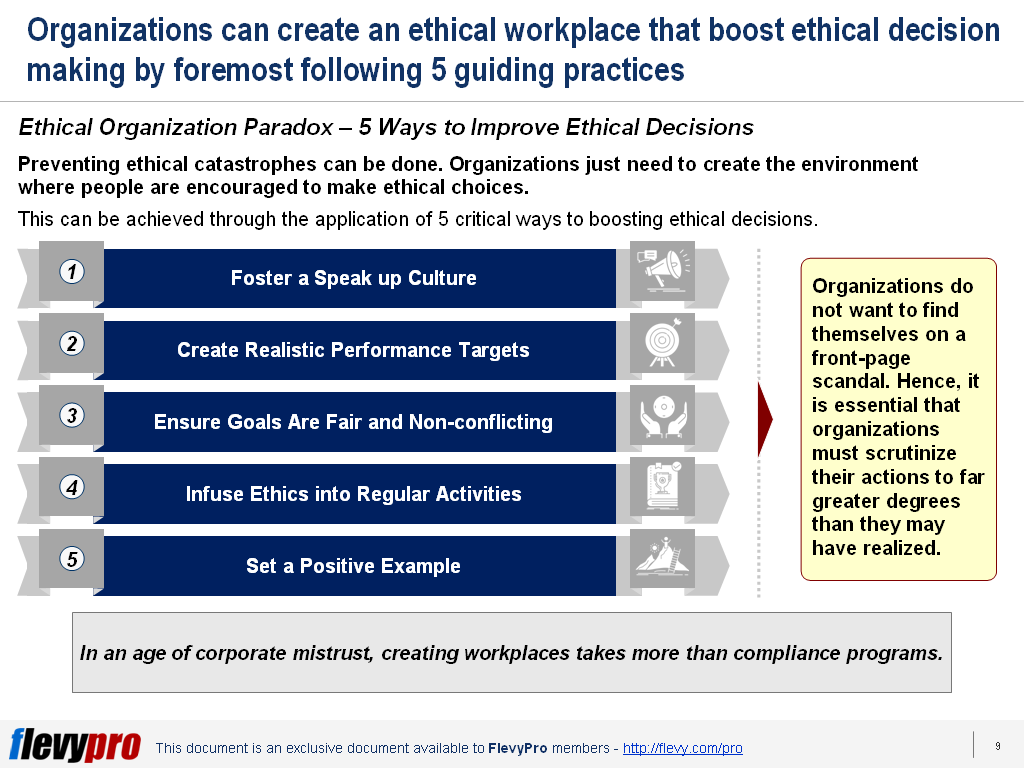Are You Able to Effectively Tap Corporate Social Responsibility (CSR) Opportunities?
20 Oct


Corporate Social Responsibility (CSR) is an organization’s commitment to produce an overall positive impact on society. CSR encompasses sustainability, social and economic impact, and business ethics. It makes a company socially accountable of its operations, stakeholders, and the public. Businesses undertake CSR programs to benefit society while boosting their own brands.
CSR affects every aspect of business operations and functions. Encouraging equal opportunities; partnering with organizations practicing ethical business methods; putting part of earnings back into environment, health, and safety initiatives; and taking care of communities and charity are all examples of CSR initiatives.
Communities, customers, employees, and media consider CSR vital and gauge companies based on these initiatives. Executives of leading companies consider CSR as an opportunity to deal with critical issues innovatively, reinforce their organizations, and serve the society simultaneously.
The Need for CSR Implementation
Organizations need to come up with a robust approach to unlock potential benefits and value from CSR for them and for the society. The organizations practicing Corporate Social Responsibility do that with one of the following 4 objectives in mind:
- Philanthropy: These initiatives (e.g. corporate donations) make the companies and society feel good, but produce low value for the business — questionable repute building benefits to companies, but offer much to society.
- Propaganda: These CSR initiatives are predominantly geared towards promoting a company’s standing, but offer little real value for the society. This form of CSR is more of advertisement and becomes risky if there are any gaps between the firm’s commitments and actions.
- Pet Projects: Some companies engage in CSR initiatives that support the personal interests of senior executives. These initiatives are much touted about, but are actually of little value to the business or community.
- Smart Partnering: These initiatives concentrate on common themes between the business and the community. Organizations, in this case, create innovative solutions by drawing synergies from partnerships to tackle major issues concerning all stakeholders.

Among these objectives, Smart Partnering offers maximum opportunities for shared value creation and finding solutions to crucial business and social challenges. Whereas for the society, smart partnering helps create more employment opportunities, improve livelihoods, and enhance the quality of life.
Guiding Principles for CSR Initiative Selection
An effective way for the companies to maximize benefits of their CSR efforts is to map the current initiatives; identify the objectives, benefits, and resources responsible for realizing value from those initiatives; and define the projects valuable for addressing key strategic challenges.
Pet projects, philanthropy, or propaganda are easy to plan and execute. However, the real issue is to implement CSR opportunities that bring value for the business as well as society (smart partnering). This goal can be achieved by applying these 3 guiding principles:
- Focus on the right segments
Real opportunities lie in the segments where the business collaborates with and influences the society the most. These segments help the business interpret mutual dependencies and uncover maximum mutual benefit.
2. Recognize challenges and benefits
After finalizing the opportunity segments, it is imperative to appreciate the potential for mutual benefit. The key is to find the right balance between the business and community and recognize the challenges that both sides face.
3. Find the right partners
Collaboration with right partners — who benefit from business endeavors and capabilities of each other — creates a win–win situation for both sides and motivates them to achieve mutual value. Sustainable collaboration demands long-term alliances and deeper insights on the strengths of each other.
These principles are helpful in selecting appropriate CSR opportunities, identifying societal and business needs to be addressed, and the required resources and capabilities.
The Case for CSR Benefits
The goal of unlocking mutual benefits — associated with CSR (specifically Smart Partnering) — is critical for long-term success of the program. As required by any other strategic initiative, the mutual value creation objective needs to be carefully assessed based on the true value-creation potential, prioritized, designed, staffed, and audited.
The next step is to outline the list of potential benefits for the business and community. A well-defined business case and a compelling story immensely helps involve and gain commitment from the senior leadership, investors, and employees.
Interested in learning more about how to tap CSR opportunities effectively? You can download an editable PowerPoint on Corporate Social Responsibility (CSR) Opportunities here on the Flevy documents marketplace.
Are you a Management Consultant?
You can download this and hundreds of other consulting frameworks and consulting training guides from the FlevyPro library.














